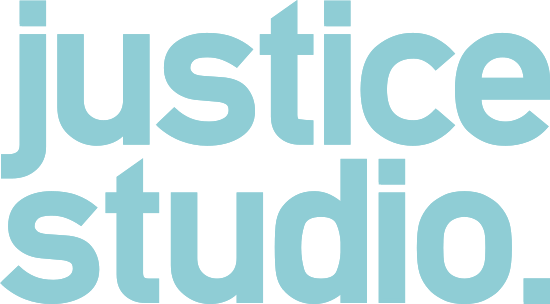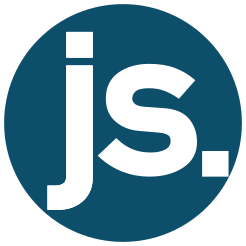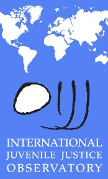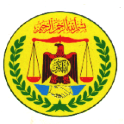Based in London, we work in the UK and internationally in a range of social justice sectors
 Investigated and sought alternative funding mechanisms for this International Non-Government Organisation which included an exploration of the implications of moving towards a sustainable full cost recovery model. Investigated and sought alternative funding mechanisms for this International Non-Government Organisation which included an exploration of the implications of moving towards a sustainable full cost recovery model. |
|
Justice Studio conducted an impact and process evaluation of the World Habitat Support Programme and the European End Street Homelessness Campaign (EESHC). Our assessment spanned eleven Campaign Cities across five European countries (Scotland, England, Spain, Belgium, and Slovakia) and the critical success factors that have led to meaningful change across the Campaign cities as well as the overall Theory of Change.
|
|
Drafted the compelling white paper: Save money, protect society, and realise youth potential: Improving youth justice systems during a time of economic crisis. |
|
Presentation to the Council of Europe Children’s Rights Taskforce of the European Council of Juvenile Justice’s white paper Save money, protect society, and realise youth potential: Improving youth justice systems during a time of economic crisis |
In partnership with AdvocAid, Justice Defenders andefence for Children International Sierra Leone, |
        |
|
        |
|
|
We worked with the Danish Refugee Council to evaluate their Community Driven Recovery and Development programme aimed at improving governance and security among communities in Doolow, Somalia. We carried out a household survey of 562 households in 15 villages in Dollow, Somalia. Interviews and focus groups were carried out with elders, women, youth, and people in receipt of special grants due to their special needs. |
|
Devised and delivered a training course to the Commission for Human Rights and Good Governance (CHRAGG) on a prison monitoring collation tool.
|
With Penal Reform International and the Netherlands Helsinki Committee, we developed and Conducted training to strengthen the capacity of independent monitors from Albania, Kosovo and Macedonia by increasing their knowledge, developing their skills, using relevant tools and teaching them how to engage with children in detention. The training used audio visuals, adult learning techniques and participation in a monitoring visit to a children’s correctional centre in Kosovo. |
|
|
|















We facilitated a conference in Astana, Kazakhstan for senior prison, human rights and religion officials on the challenge of radicalisation in prisons in Central Asia for Penal Reform International (PRI). We worked with senior Kazakh officials and international experts to produce a report with a recognition of the centrality of human rights and international covenants and instruments.















Evaluated the impact of child right’s training on civil and criminal court judges by UNICEF in Uzbekistan over a 6 month period.
.
![]()
![]()
![]()
![]()
![]()
![]()
![]()
![]()
![]()
![]()
![]()
![]()
![]()
![]()
![]()
Evaluated the AUD 35.7million Children of Uruzgan programme which focused on increasing access and use of maternal and child health services including the treatment of acute malnutrition, and increasing access to basic education services for children. The evaluation was conducted according to do-no-harm principles and leading ethical guidelines and used a results orientated evaluation methodology which looked at outputs, outcomes, effectiveness, sustainability, and equity. We applied a mixed methods approach.
.
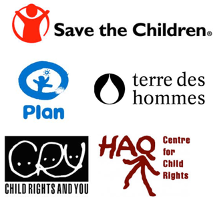

Contributed detailed country-level information to the comprehensive rights based report measuring the extent to which the South Asian governments and non-state actors have contributed to the creation of child-friendly societies in Afghanistan, Bangladesh, Bhutan, India, Maldives, Nepal, Pakistan and Sri Lanka.
![]()
![]()
![]()
![]()
![]()
![]()
![]()
![]()
![]()
![]()
![]()
![]()
![]()
![]()
![]()
![]()
![]()
![]()
![]()
![]()
![]()
![]()
![]()
![]()
![]()
![]()
![]()
![]()
![]()
![]()
![]()
![]()
![]()
![]()
![]()
![]()
![]()
![]()
![]()
![]()
![]()
![]()
![]()
![]()
![]()
![]()
![]()
![]()
![]()
![]()
![]()
Consulted with government stakeholders and international NGOs to design and establish a process for diverting children away from the criminal justice system in Afghanistan. Finalised the diversion policy and guidance in preparation for roll-out across the country and embedding into the planned Afghanistan Child Act.















Penal Reform International commissioned us to evaluate their project aimed at tackling Violence Against Children in closed institutions in Kazakhstan, Kyrgyzstan and Tajikistan. We assessed the effectiveness and sustainability of the project using a mixed method approach consisting of literature review of relevant research and project documentation, a survey, and semi-structured interviews with stakeholders carried out in Tajikistan, Kyrgyzstan and Kazakhstan during September 2016.
![]()
![]()
![]()
![]()
![]()
![]()
![]()
![]()
|
|
Conducting a multi-country evaluation of the impact of juvenile justice system reforms in eleven countries: Albania, Armenia, Azerbaijan, Georgia, Kazakhstan, Kosovo, Kyrgyzstan, Moldova, Montenegro, Tajikistan and Ukraine. |
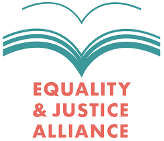        We worked for the Royal Commonwealth Society and partners via the Equality and Justice Alliance (the Commonwealth Society) to explore an intergenerational approach to women’s and LGBT+ movement building. In this research we mapped the approaches and movements in the regions of Pacific and Caribbean and Southern Africa. We also undertook a comprehensive literature review and qualitative semi-structured interviews with representatives youth activists and older generations activists from LGBT and women’s movements to qualitatively explore engagement best practice. |
WHERE WE WORK
Based in London, we work in the UK and internationally in a range of social justice sectors















Evaluated the impact of child right’s training on civil and criminal court judges by UNICEF in Uzbekistan over a 6 month period.
.
![]()
![]()
![]()
![]()
![]()
![]()
![]()
![]()
![]()
![]()
![]()
![]()
![]()
![]()
![]()
![]()
![]()
![]()
![]()
![]()
![]()
![]()
![]()
![]()
![]()
![]()
![]()
![]()
![]()
![]()
![]()
![]()
![]()
![]()
![]()
![]()
Consulted with government stakeholders and international NGOs to design and establish a process for diverting children away from the criminal justice system in Afghanistan. Finalised the diversion policy and guidance in preparation for roll-out across the country and embedding into the planned Afghanistan Child Act.
![]()
![]()
![]()
![]()
![]()
![]()
![]()
![]()
![]()
![]()
![]()
![]()
![]()
![]()
![]()
Evaluated the AUD 35.7million Children of Uruzgan programme which focused on increasing access and use of maternal and child health services including the treatment of acute malnutrition, and increasing access to basic education services for children. The evaluation was conducted according to do-no-harm principles and leading ethical guidelines and used a results orientated evaluation methodology which looked at outputs, outcomes, effectiveness, sustainability, and equity. We applied a mixed methods approach.
.
![]()
![]()
![]()
![]()
![]()
![]()
![]()
![]()
![]()
![]()
![]()
![]()
![]()
![]()
![]()
|
|
Conducting a multi-country evaluation of the impact of juvenile justice system reforms in eleven countries: Albania, Armenia, Azerbaijan, Georgia, Kazakhstan, Kosovo, Kyrgyzstan, Moldova, Montenegro, Tajikistan and Ukraine. |
|
Drafted the compelling white paper: Save money, protect society, and realise youth potential: Improving youth justice systems during a time of economic crisis. |
![]()
![]()
![]()
![]()
![]()
![]()
![]()
![]()
        We worked for the Royal Commonwealth Society and partners via the Equality and Justice Alliance (the Commonwealth Society) to explore an intergenerational approach to women’s and LGBT+ movement building. In this research we mapped the approaches and movements in the regions of Pacific and Caribbean and Southern Africa. We also undertook a comprehensive literature review and qualitative semi-structured interviews with representatives youth activists and older generations activists from LGBT and women’s movements to qualitatively explore engagement best practice. |
        |
|
Presentation to the Council of Europe Children’s Rights Taskforce of the European Council of Juvenile Justice’s white paper Save money, protect society, and realise youth potential: Improving youth justice systems during a time of economic crisis |
|
With Penal Reform International and the Netherlands Helsinki Committee, we developed and Conducted training to strengthen the capacity of independent monitors from Albania, Kosovo and Macedonia by increasing their knowledge, developing their skills, using relevant tools and teaching them how to engage with children in detention. The training used audio visuals, adult learning techniques and participation in a monitoring visit to a children’s correctional centre in Kosovo. |















Penal Reform International commissioned us to evaluate their project aimed at tackling Violence Against Children in closed institutions in Kazakhstan, Kyrgyzstan and Tajikistan. We assessed the effectiveness and sustainability of the project using a mixed method approach consisting of literature review of relevant research and project documentation, a survey, and semi-structured interviews with stakeholders carried out in Tajikistan, Kyrgyzstan and Kazakhstan during September 2016.















We facilitated a conference in Astana, Kazakhstan for senior prison, human rights and religion officials on the challenge of radicalisation in prisons in Central Asia for Penal Reform International (PRI). We worked with senior Kazakh officials and international experts to produce a report with a recognition of the centrality of human rights and international covenants and instruments.
|
|
|
Justice Studio conducted an impact and process evaluation of the World Habitat Support Programme and the European End Street Homelessness Campaign (EESHC). Our assessment spanned eleven Campaign Cities across five European countries (Scotland, England, Spain, Belgium, and Slovakia) and the critical success factors that have led to meaningful change across the Campaign cities as well as the overall Theory of Change.
|
In partnership with AdvocAid, Justice Defenders andefence for Children International Sierra Leone, |
|
        |
|
|
We worked with the Danish Refugee Council to evaluate their Community Driven Recovery and Development programme aimed at improving governance and security among communities in Doolow, Somalia. We carried out a household survey of 562 households in 15 villages in Dollow, Somalia. Interviews and focus groups were carried out with elders, women, youth, and people in receipt of special grants due to their special needs. |
Devised and delivered a training course to the Commission for Human Rights and Good Governance (CHRAGG) on a prison monitoring collation tool.
|
               |
|















Evaluated the impact of child right’s training on civil and criminal court judges by UNICEF in Uzbekistan over a 6 month period.
.
![]()
![]()
![]()
![]()
![]()
![]()
![]()
![]()
![]()
![]()
![]()
![]()
![]()
![]()
![]()
![]()
![]()
![]()
![]()
![]()
![]()
![]()
![]()
![]()
![]()
![]()
![]()
![]()
![]()
![]()
![]()
![]()
![]()
![]()
![]()
![]()
Consulted with government stakeholders and international NGOs to design and establish a process for diverting children away from the criminal justice system in Afghanistan. Finalised the diversion policy and guidance in preparation for roll-out across the country and embedding into the planned Afghanistan Child Act.
![]()
![]()
![]()
![]()
![]()
![]()
![]()
![]()
![]()
![]()
![]()
![]()
![]()
![]()
![]()
Evaluated the AUD 35.7million Children of Uruzgan programme which focused on increasing access and use of maternal and child health services including the treatment of acute malnutrition, and increasing access to basic education services for children. The evaluation was conducted according to do-no-harm principles and leading ethical guidelines and used a results orientated evaluation methodology which looked at outputs, outcomes, effectiveness, sustainability, and equity. We applied a mixed methods approach.
.
![]()
![]()
![]()
![]()
![]()
![]()
![]()
![]()
![]()
![]()
![]()
![]()
![]()
![]()
![]()
|
|
Conducting a multi-country evaluation of the impact of juvenile justice system reforms in eleven countries: Albania, Armenia, Azerbaijan, Georgia, Kazakhstan, Kosovo, Kyrgyzstan, Moldova, Montenegro, Tajikistan and Ukraine. |
|
Drafted the compelling white paper: Save money, protect society, and realise youth potential: Improving youth justice systems during a time of economic crisis. |
![]()
![]()
![]()
![]()
![]()
![]()
![]()
![]()
        We worked for the Royal Commonwealth Society and partners via the Equality and Justice Alliance (the Commonwealth Society) to explore an intergenerational approach to women’s and LGBT+ movement building. In this research we mapped the approaches and movements in the regions of Pacific and Caribbean and Southern Africa. We also undertook a comprehensive literature review and qualitative semi-structured interviews with representatives youth activists and older generations activists from LGBT and women’s movements to qualitatively explore engagement best practice. |
        |
|
Presentation to the Council of Europe Children’s Rights Taskforce of the European Council of Juvenile Justice’s white paper Save money, protect society, and realise youth potential: Improving youth justice systems during a time of economic crisis |
|
With Penal Reform International and the Netherlands Helsinki Committee, we developed and Conducted training to strengthen the capacity of independent monitors from Albania, Kosovo and Macedonia by increasing their knowledge, developing their skills, using relevant tools and teaching them how to engage with children in detention. The training used audio visuals, adult learning techniques and participation in a monitoring visit to a children’s correctional centre in Kosovo. |















Penal Reform International commissioned us to evaluate their project aimed at tackling Violence Against Children in closed institutions in Kazakhstan, Kyrgyzstan and Tajikistan. We assessed the effectiveness and sustainability of the project using a mixed method approach consisting of literature review of relevant research and project documentation, a survey, and semi-structured interviews with stakeholders carried out in Tajikistan, Kyrgyzstan and Kazakhstan during September 2016.















We facilitated a conference in Astana, Kazakhstan for senior prison, human rights and religion officials on the challenge of radicalisation in prisons in Central Asia for Penal Reform International (PRI). We worked with senior Kazakh officials and international experts to produce a report with a recognition of the centrality of human rights and international covenants and instruments.
|
|
|
Justice Studio conducted an impact and process evaluation of the World Habitat Support Programme and the European End Street Homelessness Campaign (EESHC). Our assessment spanned eleven Campaign Cities across five European countries (Scotland, England, Spain, Belgium, and Slovakia) and the critical success factors that have led to meaningful change across the Campaign cities as well as the overall Theory of Change.
|
In partnership with AdvocAid, Justice Defenders andefence for Children International Sierra Leone, |
|
        |
|
|
We worked with the Danish Refugee Council to evaluate their Community Driven Recovery and Development programme aimed at improving governance and security among communities in Doolow, Somalia. We carried out a household survey of 562 households in 15 villages in Dollow, Somalia. Interviews and focus groups were carried out with elders, women, youth, and people in receipt of special grants due to their special needs. |
Devised and delivered a training course to the Commission for Human Rights and Good Governance (CHRAGG) on a prison monitoring collation tool.
|
               |
|















Evaluated the impact of child right’s training on civil and criminal court judges by UNICEF in Uzbekistan over a 6 month period.
.
![]()
![]()
![]()
![]()
![]()
![]()
![]()
![]()
![]()
![]()
![]()
![]()
![]()
![]()
![]()
![]()
![]()
![]()
![]()
![]()
![]()
![]()
![]()
![]()
![]()
![]()
![]()
![]()
![]()
![]()
![]()
![]()
![]()
![]()
![]()
![]()
Consulted with government stakeholders and international NGOs to design and establish a process for diverting children away from the criminal justice system in Afghanistan. Finalised the diversion policy and guidance in preparation for roll-out across the country and embedding into the planned Afghanistan Child Act.
![]()
![]()
![]()
![]()
![]()
![]()
![]()
![]()
![]()
![]()
![]()
![]()
![]()
![]()
![]()
Evaluated the AUD 35.7million Children of Uruzgan programme which focused on increasing access and use of maternal and child health services including the treatment of acute malnutrition, and increasing access to basic education services for children. The evaluation was conducted according to do-no-harm principles and leading ethical guidelines and used a results orientated evaluation methodology which looked at outputs, outcomes, effectiveness, sustainability, and equity. We applied a mixed methods approach.
.
![]()
![]()
![]()
![]()
![]()
![]()
![]()
![]()
![]()
![]()
![]()
![]()
![]()
![]()
![]()
|
|
Conducting a multi-country evaluation of the impact of juvenile justice system reforms in eleven countries: Albania, Armenia, Azerbaijan, Georgia, Kazakhstan, Kosovo, Kyrgyzstan, Moldova, Montenegro, Tajikistan and Ukraine. |
|
Drafted the compelling white paper: Save money, protect society, and realise youth potential: Improving youth justice systems during a time of economic crisis. |
![]()
![]()
![]()
![]()
![]()
![]()
![]()
![]()
        We worked for the Royal Commonwealth Society and partners via the Equality and Justice Alliance (the Commonwealth Society) to explore an intergenerational approach to women’s and LGBT+ movement building. In this research we mapped the approaches and movements in the regions of Pacific and Caribbean and Southern Africa. We also undertook a comprehensive literature review and qualitative semi-structured interviews with representatives youth activists and older generations activists from LGBT and women’s movements to qualitatively explore engagement best practice. |
        |
|
Presentation to the Council of Europe Children’s Rights Taskforce of the European Council of Juvenile Justice’s white paper Save money, protect society, and realise youth potential: Improving youth justice systems during a time of economic crisis |
|
With Penal Reform International and the Netherlands Helsinki Committee, we developed and Conducted training to strengthen the capacity of independent monitors from Albania, Kosovo and Macedonia by increasing their knowledge, developing their skills, using relevant tools and teaching them how to engage with children in detention. The training used audio visuals, adult learning techniques and participation in a monitoring visit to a children’s correctional centre in Kosovo. |















Penal Reform International commissioned us to evaluate their project aimed at tackling Violence Against Children in closed institutions in Kazakhstan, Kyrgyzstan and Tajikistan. We assessed the effectiveness and sustainability of the project using a mixed method approach consisting of literature review of relevant research and project documentation, a survey, and semi-structured interviews with stakeholders carried out in Tajikistan, Kyrgyzstan and Kazakhstan during September 2016.















We facilitated a conference in Astana, Kazakhstan for senior prison, human rights and religion officials on the challenge of radicalisation in prisons in Central Asia for Penal Reform International (PRI). We worked with senior Kazakh officials and international experts to produce a report with a recognition of the centrality of human rights and international covenants and instruments.
|
|
|
Justice Studio conducted an impact and process evaluation of the World Habitat Support Programme and the European End Street Homelessness Campaign (EESHC). Our assessment spanned eleven Campaign Cities across five European countries (Scotland, England, Spain, Belgium, and Slovakia) and the critical success factors that have led to meaningful change across the Campaign cities as well as the overall Theory of Change.
|
In partnership with AdvocAid, Justice Defenders andefence for Children International Sierra Leone, |
|
        |
|
|
We worked with the Danish Refugee Council to evaluate their Community Driven Recovery and Development programme aimed at improving governance and security among communities in Doolow, Somalia. We carried out a household survey of 562 households in 15 villages in Dollow, Somalia. Interviews and focus groups were carried out with elders, women, youth, and people in receipt of special grants due to their special needs. |
Devised and delivered a training course to the Commission for Human Rights and Good Governance (CHRAGG) on a prison monitoring collation tool.
|
               |
|















Evaluated the impact of child right’s training on civil and criminal court judges by UNICEF in Uzbekistan over a 6 month period.
.
![]()
![]()
![]()
![]()
![]()
![]()
![]()
![]()
![]()
![]()
![]()
![]()
![]()
![]()
![]()
![]()
![]()
![]()
![]()
![]()
![]()
![]()
![]()
![]()
![]()
![]()
![]()
![]()
![]()
![]()
![]()
![]()
![]()
![]()
![]()
![]()
Consulted with government stakeholders and international NGOs to design and establish a process for diverting children away from the criminal justice system in Afghanistan. Finalised the diversion policy and guidance in preparation for roll-out across the country and embedding into the planned Afghanistan Child Act.
![]()
![]()
![]()
![]()
![]()
![]()
![]()
![]()
![]()
![]()
![]()
![]()
![]()
![]()
![]()
Evaluated the AUD 35.7million Children of Uruzgan programme which focused on increasing access and use of maternal and child health services including the treatment of acute malnutrition, and increasing access to basic education services for children. The evaluation was conducted according to do-no-harm principles and leading ethical guidelines and used a results orientated evaluation methodology which looked at outputs, outcomes, effectiveness, sustainability, and equity. We applied a mixed methods approach.
.
![]()
![]()
![]()
![]()
![]()
![]()
![]()
![]()
![]()
![]()
![]()
![]()
![]()
![]()
![]()
|
|
Conducting a multi-country evaluation of the impact of juvenile justice system reforms in eleven countries: Albania, Armenia, Azerbaijan, Georgia, Kazakhstan, Kosovo, Kyrgyzstan, Moldova, Montenegro, Tajikistan and Ukraine. |
|
Drafted the compelling white paper: Save money, protect society, and realise youth potential: Improving youth justice systems during a time of economic crisis. |
![]()
![]()
![]()
![]()
![]()
![]()
![]()
![]()
        We worked for the Royal Commonwealth Society and partners via the Equality and Justice Alliance (the Commonwealth Society) to explore an intergenerational approach to women’s and LGBT+ movement building. In this research we mapped the approaches and movements in the regions of Pacific and Caribbean and Southern Africa. We also undertook a comprehensive literature review and qualitative semi-structured interviews with representatives youth activists and older generations activists from LGBT and women’s movements to qualitatively explore engagement best practice. |
        |
|
Presentation to the Council of Europe Children’s Rights Taskforce of the European Council of Juvenile Justice’s white paper Save money, protect society, and realise youth potential: Improving youth justice systems during a time of economic crisis |
|
With Penal Reform International and the Netherlands Helsinki Committee, we developed and Conducted training to strengthen the capacity of independent monitors from Albania, Kosovo and Macedonia by increasing their knowledge, developing their skills, using relevant tools and teaching them how to engage with children in detention. The training used audio visuals, adult learning techniques and participation in a monitoring visit to a children’s correctional centre in Kosovo. |















Penal Reform International commissioned us to evaluate their project aimed at tackling Violence Against Children in closed institutions in Kazakhstan, Kyrgyzstan and Tajikistan. We assessed the effectiveness and sustainability of the project using a mixed method approach consisting of literature review of relevant research and project documentation, a survey, and semi-structured interviews with stakeholders carried out in Tajikistan, Kyrgyzstan and Kazakhstan during September 2016.















We facilitated a conference in Astana, Kazakhstan for senior prison, human rights and religion officials on the challenge of radicalisation in prisons in Central Asia for Penal Reform International (PRI). We worked with senior Kazakh officials and international experts to produce a report with a recognition of the centrality of human rights and international covenants and instruments.
|
|
|
Justice Studio conducted an impact and process evaluation of the World Habitat Support Programme and the European End Street Homelessness Campaign (EESHC). Our assessment spanned eleven Campaign Cities across five European countries (Scotland, England, Spain, Belgium, and Slovakia) and the critical success factors that have led to meaningful change across the Campaign cities as well as the overall Theory of Change.
|
In partnership with AdvocAid, Justice Defenders andefence for Children International Sierra Leone, |
|
        |
|
|
We worked with the Danish Refugee Council to evaluate their Community Driven Recovery and Development programme aimed at improving governance and security among communities in Doolow, Somalia. We carried out a household survey of 562 households in 15 villages in Dollow, Somalia. Interviews and focus groups were carried out with elders, women, youth, and people in receipt of special grants due to their special needs. |
Devised and delivered a training course to the Commission for Human Rights and Good Governance (CHRAGG) on a prison monitoring collation tool.
|
               |
|















Evaluated the impact of child right’s training on civil and criminal court judges by UNICEF in Uzbekistan over a 6 month period.
.
![]()
![]()
![]()
![]()
![]()
![]()
![]()
![]()
![]()
![]()
![]()
![]()
![]()
![]()
![]()
![]()
![]()
![]()
![]()
![]()
![]()
![]()
![]()
![]()
![]()
![]()
![]()
![]()
![]()
![]()
![]()
![]()
![]()
![]()
![]()
![]()
Consulted with government stakeholders and international NGOs to design and establish a process for diverting children away from the criminal justice system in Afghanistan. Finalised the diversion policy and guidance in preparation for roll-out across the country and embedding into the planned Afghanistan Child Act.
![]()
![]()
![]()
![]()
![]()
![]()
![]()
![]()
![]()
![]()
![]()
![]()
![]()
![]()
![]()
Evaluated the AUD 35.7million Children of Uruzgan programme which focused on increasing access and use of maternal and child health services including the treatment of acute malnutrition, and increasing access to basic education services for children. The evaluation was conducted according to do-no-harm principles and leading ethical guidelines and used a results orientated evaluation methodology which looked at outputs, outcomes, effectiveness, sustainability, and equity. We applied a mixed methods approach.
.
![]()
![]()
![]()
![]()
![]()
![]()
![]()
![]()
![]()
![]()
![]()
![]()
![]()
![]()
![]()
|
|
Conducting a multi-country evaluation of the impact of juvenile justice system reforms in eleven countries: Albania, Armenia, Azerbaijan, Georgia, Kazakhstan, Kosovo, Kyrgyzstan, Moldova, Montenegro, Tajikistan and Ukraine. |
|
Drafted the compelling white paper: Save money, protect society, and realise youth potential: Improving youth justice systems during a time of economic crisis. |
![]()
![]()
![]()
![]()
![]()
![]()
![]()
![]()
        We worked for the Royal Commonwealth Society and partners via the Equality and Justice Alliance (the Commonwealth Society) to explore an intergenerational approach to women’s and LGBT+ movement building. In this research we mapped the approaches and movements in the regions of Pacific and Caribbean and Southern Africa. We also undertook a comprehensive literature review and qualitative semi-structured interviews with representatives youth activists and older generations activists from LGBT and women’s movements to qualitatively explore engagement best practice. |
        |
|
Presentation to the Council of Europe Children’s Rights Taskforce of the European Council of Juvenile Justice’s white paper Save money, protect society, and realise youth potential: Improving youth justice systems during a time of economic crisis |
|
With Penal Reform International and the Netherlands Helsinki Committee, we developed and Conducted training to strengthen the capacity of independent monitors from Albania, Kosovo and Macedonia by increasing their knowledge, developing their skills, using relevant tools and teaching them how to engage with children in detention. The training used audio visuals, adult learning techniques and participation in a monitoring visit to a children’s correctional centre in Kosovo. |















Penal Reform International commissioned us to evaluate their project aimed at tackling Violence Against Children in closed institutions in Kazakhstan, Kyrgyzstan and Tajikistan. We assessed the effectiveness and sustainability of the project using a mixed method approach consisting of literature review of relevant research and project documentation, a survey, and semi-structured interviews with stakeholders carried out in Tajikistan, Kyrgyzstan and Kazakhstan during September 2016.















We facilitated a conference in Astana, Kazakhstan for senior prison, human rights and religion officials on the challenge of radicalisation in prisons in Central Asia for Penal Reform International (PRI). We worked with senior Kazakh officials and international experts to produce a report with a recognition of the centrality of human rights and international covenants and instruments.
|
|
|
Justice Studio conducted an impact and process evaluation of the World Habitat Support Programme and the European End Street Homelessness Campaign (EESHC). Our assessment spanned eleven Campaign Cities across five European countries (Scotland, England, Spain, Belgium, and Slovakia) and the critical success factors that have led to meaningful change across the Campaign cities as well as the overall Theory of Change.
|
In partnership with AdvocAid, Justice Defenders andefence for Children International Sierra Leone, |
|
        |
|
|
We worked with the Danish Refugee Council to evaluate their Community Driven Recovery and Development programme aimed at improving governance and security among communities in Doolow, Somalia. We carried out a household survey of 562 households in 15 villages in Dollow, Somalia. Interviews and focus groups were carried out with elders, women, youth, and people in receipt of special grants due to their special needs. |
Devised and delivered a training course to the Commission for Human Rights and Good Governance (CHRAGG) on a prison monitoring collation tool.
|
               |
|















Evaluated the impact of child right’s training on civil and criminal court judges by UNICEF in Uzbekistan over a 6 month period.
.
![]()
![]()
![]()
![]()
![]()
![]()
![]()
![]()
![]()
![]()
![]()
![]()
![]()
![]()
![]()
![]()
![]()
![]()
![]()
![]()
![]()
![]()
![]()
![]()
![]()
![]()
![]()
![]()
![]()
![]()
![]()
![]()
![]()
![]()
![]()
![]()
Consulted with government stakeholders and international NGOs to design and establish a process for diverting children away from the criminal justice system in Afghanistan. Finalised the diversion policy and guidance in preparation for roll-out across the country and embedding into the planned Afghanistan Child Act.
![]()
![]()
![]()
![]()
![]()
![]()
![]()
![]()
![]()
![]()
![]()
![]()
![]()
![]()
![]()
Evaluated the AUD 35.7million Children of Uruzgan programme which focused on increasing access and use of maternal and child health services including the treatment of acute malnutrition, and increasing access to basic education services for children. The evaluation was conducted according to do-no-harm principles and leading ethical guidelines and used a results orientated evaluation methodology which looked at outputs, outcomes, effectiveness, sustainability, and equity. We applied a mixed methods approach.
.
![]()
![]()
![]()
![]()
![]()
![]()
![]()
![]()
![]()
![]()
![]()
![]()
![]()
![]()
![]()
|
|
Conducting a multi-country evaluation of the impact of juvenile justice system reforms in eleven countries: Albania, Armenia, Azerbaijan, Georgia, Kazakhstan, Kosovo, Kyrgyzstan, Moldova, Montenegro, Tajikistan and Ukraine. |
|
Drafted the compelling white paper: Save money, protect society, and realise youth potential: Improving youth justice systems during a time of economic crisis. |
![]()
![]()
![]()
![]()
![]()
![]()
![]()
![]()
        We worked for the Royal Commonwealth Society and partners via the Equality and Justice Alliance (the Commonwealth Society) to explore an intergenerational approach to women’s and LGBT+ movement building. In this research we mapped the approaches and movements in the regions of Pacific and Caribbean and Southern Africa. We also undertook a comprehensive literature review and qualitative semi-structured interviews with representatives youth activists and older generations activists from LGBT and women’s movements to qualitatively explore engagement best practice. |
        |
|
Presentation to the Council of Europe Children’s Rights Taskforce of the European Council of Juvenile Justice’s white paper Save money, protect society, and realise youth potential: Improving youth justice systems during a time of economic crisis |
|
With Penal Reform International and the Netherlands Helsinki Committee, we developed and Conducted training to strengthen the capacity of independent monitors from Albania, Kosovo and Macedonia by increasing their knowledge, developing their skills, using relevant tools and teaching them how to engage with children in detention. The training used audio visuals, adult learning techniques and participation in a monitoring visit to a children’s correctional centre in Kosovo. |















Penal Reform International commissioned us to evaluate their project aimed at tackling Violence Against Children in closed institutions in Kazakhstan, Kyrgyzstan and Tajikistan. We assessed the effectiveness and sustainability of the project using a mixed method approach consisting of literature review of relevant research and project documentation, a survey, and semi-structured interviews with stakeholders carried out in Tajikistan, Kyrgyzstan and Kazakhstan during September 2016.















We facilitated a conference in Astana, Kazakhstan for senior prison, human rights and religion officials on the challenge of radicalisation in prisons in Central Asia for Penal Reform International (PRI). We worked with senior Kazakh officials and international experts to produce a report with a recognition of the centrality of human rights and international covenants and instruments.
|
|
|
Justice Studio conducted an impact and process evaluation of the World Habitat Support Programme and the European End Street Homelessness Campaign (EESHC). Our assessment spanned eleven Campaign Cities across five European countries (Scotland, England, Spain, Belgium, and Slovakia) and the critical success factors that have led to meaningful change across the Campaign cities as well as the overall Theory of Change.
|
In partnership with AdvocAid, Justice Defenders andefence for Children International Sierra Leone, |
|
        |
|
|
We worked with the Danish Refugee Council to evaluate their Community Driven Recovery and Development programme aimed at improving governance and security among communities in Doolow, Somalia. We carried out a household survey of 562 households in 15 villages in Dollow, Somalia. Interviews and focus groups were carried out with elders, women, youth, and people in receipt of special grants due to their special needs. |
Devised and delivered a training course to the Commission for Human Rights and Good Governance (CHRAGG) on a prison monitoring collation tool.
|
               |
|
